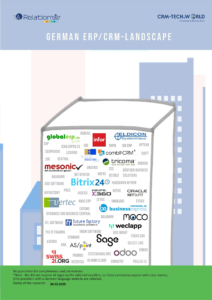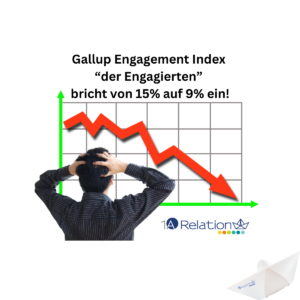ERP stands for Enterprise Resource Planning.
In Wikipedia it says “Enterprise Resource Planning (ERP) refers to the entrepreneurial task of planning, controlling and managing resources such as capital, personnel, operating resources, material and information and communication technology in a timely manner and in line with the company’s needs. The aim is to ensure an efficient operational value-added process and a continuously optimised control of the entrepreneurial and operational processes”. (as of 26.05.2020)
CRM stands for Customer Relationship Management.
In Wikipedia it says “Customer-Relationship-Management, short CRM (english for customer relationship management or customer care), describes the consistent orientation of a company towards its customers and the systematic design of customer relationship processes.
The associated documentation and management of customer relationships is an important component and enables more in-depth relationship marketing. In many industries (e.g. telecommunications, mail order, service companies), relationships between companies and customers are long-term in nature. By means of CRM, these customer relationships are cultivated, which should have a significant impact on the company’s success”. (as of 26.05.2020)
Here are two videos (Video 1 and Video 2) that explain the benefits and functions of an ERP solution. (as of 26.05.2020)
The market leader in the field of business software SAP from Walldorf describes this on its own website as follows. (as of 26.05.2020)







